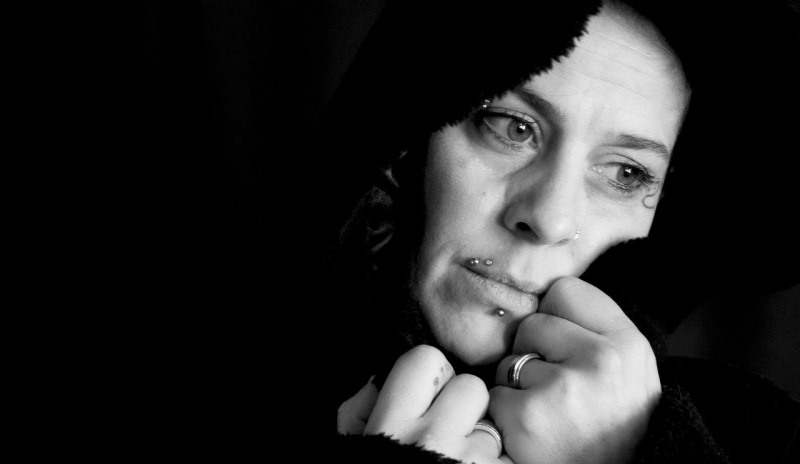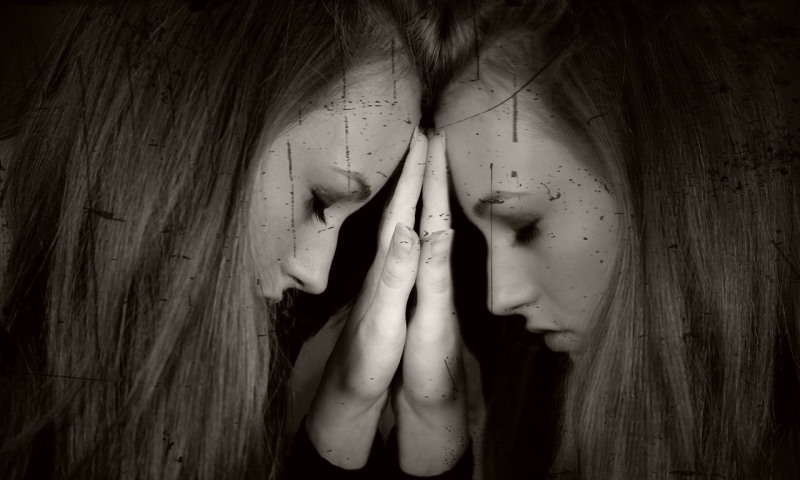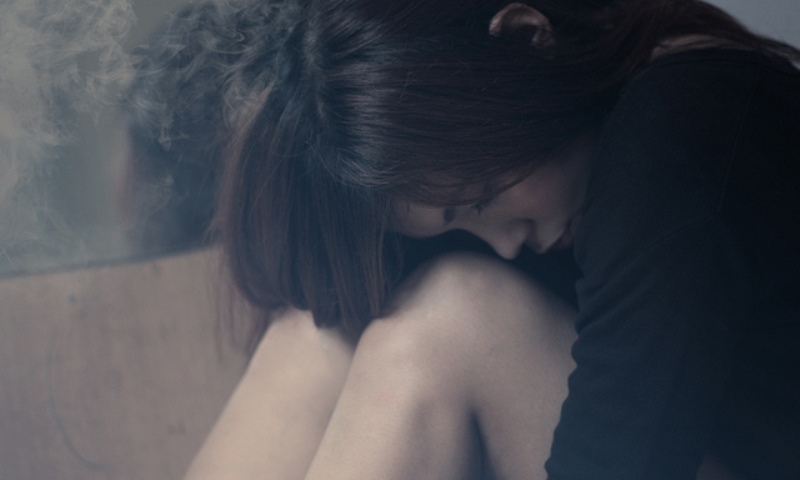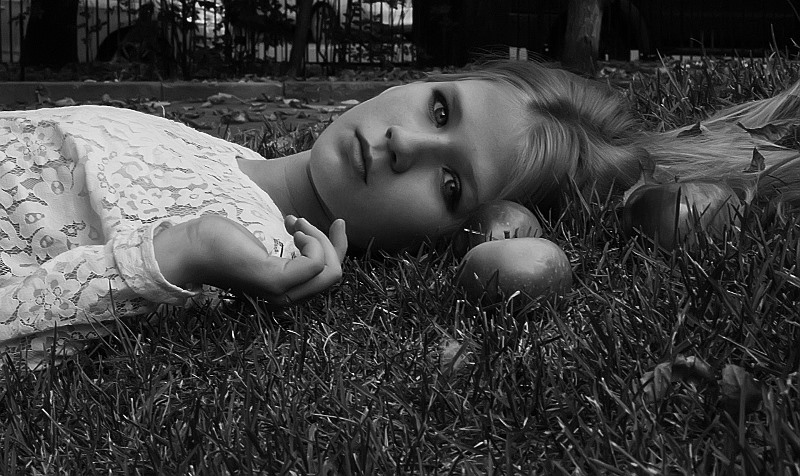I grew up a witness to a strange phenomenon. I say strange because it certainly didn’t transpire in my universe. But when I saw it in someone else’s, it seemed to me a retched-up blotch dropped from an alien spacecraft. Strange and repulsive. I am talking of the response of my cousins’ family to nearly every show of emotion they had- a loud roar of laughter and a dismissive wave of the hand. Translated verbatim, it said “Don’t mind them, they’re just being dramatic.”

Image source: Pinterest
Having been fortunate enough to grow in a household that not only laid a premium by feelings but also encouraged healthy emotional expression, my summers at my cousins’ place always stung. Not because I didn’t love them or something but because their family liked to ‘bust chops’ and Riya (my favorite cousin) was at the receiving end of the ribbing. It s*cked. Big time.
Suggested read: Let’s make love: Why I will ALWAYS choose gentle lovemaking over ravishing romps
While my other cousins deflected the blow by choosing to pin the ‘drama queen’ sash to their garb with a forced smile, I saw Riya struggle. Her instinctive responses, the behaviors to which she’d default under a trying circumstance weren’t just dismissed or invalidated, but often, accused. Her crying, defensiveness, obsession were all castigated in favor of a stoic response to suffering. A response that wasn’t innate to her. A response that was being thrust upon her to imbibe, even if she didn’t feel that way.

Image source: Pixabay, under Creative Commons License
Looking back, I know that my genetic lottery does not erase this collective plight of sensitive women around the world. Most sensitive women are branded ‘drama queens’ by a culture that values a stoic, dignified response to suffering. In modern lingo, it’d imply ‘keeping your sh*t together.’ And while I have nothing against those who can brave the storms in life with their ‘I-will-beat-your-a*s’ game face on, I do have a problem with the rebuke hurled at those who are accused for not having it in them. I do have a problem with the semantics that stuffs ‘emotional,’ ‘sensitive’ and ‘dramatic’ in an interchangeable compartment.
Sensitive women are seen, very often, as self-centered beings who have a way of privileging their own emotions over others’ by exaggeration, inflation or worse, invention. And while I’d love to direct my justified rage at this highly misleading (not to mention, false) definition, I don’t even think it merits that response. Who knows- my anger might be construed as drama!
Suggested read: You are not meant to forget him
So, I will do what rational beings do. Present my argument.
You see- definitions like these stem from deeply-embedded cultural attitudes that associate quiet suffering with strength. For too long, our culture has mapped a strange correlation between quietly bearing one’s burden and some strange, intrinsic strength. On the other end of the spectrum, they have marked the expression of one’s emotions as a hyperbole of feeling. Unnecessary and too much.
What’s more, women aren’t the only victims of such an attitude. Men, too, are required to keep their emotions under the surface, for ‘too much’ expression would deflate their ‘masculinity.’ Of course, the reasons for both attitudes vary, by gender but the underlying idea is the same. Expressing emotion is a sign of weakness, a sign of surrender, a sign of defeat.
My question in this whole complicated nexus of ‘ideas’ is what is there to win by choosing to not be oneself? This cultural backlash against humans (primarily women) for crying out too loud, playing the victim or acting the old role is sheer lunacy.

Image source: Pixabay, under Creative Commons License
Sensitivity, to the point of oversimplification, could mean being easily wounded. But in reality, it has more to do with receptivity. We all react to stimuli differently. The same triggers that try us can evoke a completely different response in others. Then, why are we using the same yardstick to measure everybody ‘living’ their own life? Why are we subjecting them to our own tired assumptions about what a ‘suitable response’ to a trigger should be like? Why are we making the decision, for them?
I will tell you why. An emotional display is incendiary in our culture for a variety of reasons. Women, long subjected to the ‘judgment’ for being ‘melodramatic,’ hurl the accusation upon others when they think that the impending outburst might channel an inner drama queen. It wouldn’t matter whether they can, at some level, empathize with the woman- for an open display of emotions might elicit self-pity and that they have to deny. They have to curtail the ’amplified’ need to ‘share’ one’s suffering and evoke sympathy- for our culture deems this ‘selfish.’
In her essay “The Grand Unified Theory of Female Pain,” renowned author Leslie Jamison attempts to untangle our culture’s fascination with and revulsion to women expressly suffering by analyzing the vitriol encoded in the “emo” display as:
A cry for attention is positioned as the ultimate crime, clutching or trivial—as if ‘attention’ were inherently a selfish thing to want. But isn’t wanting attention one of the most fundamental traits of being human—and isn’t it granting it one of the most important gifts we can give?”
And it’s true- denying one’s emotions an authentic outlet is not making anybody stronger. It is simply turning sensitive women into bottomless barrels of subversive emotion that can explode any time. That, I believe, is a greater danger than the one that makes us think that talking too much about our feelings will make people take us less seriously, or earn us the ultimate dismissal.

Image source: Flickr
Sensitive women need to be understood better. Their ability to pick up shifts in their immediate environment, the need to express their feelings, in all their intensity and the subsequent articulation needs NOT to be dismissed but accepted. There is no need to apply some logic to the issue. ‘Emotions’ and ‘logic’ make for a binary mankind has long grappled with. So, let’s keep it simple.
If you know that being logical does not make you detached, you should accept that sensitivity, too, does not equal drama.
Suggested read: A day without laughter is a day wasted
And I can say this with absolute certitude because I tear up even when my laptop starts to flash a blank screen! And all I need in that moment is not someone who calls out my crazy but for someone to tell me “I feel everything so hard, it’s wonderful.”
Coz, to be honest, it does feel wonderful, sans judgment!
Featured image source: Pixabay, under Creative Commons License













